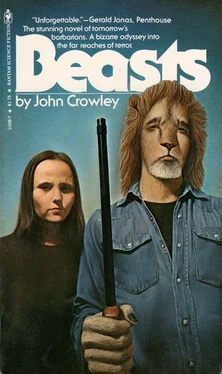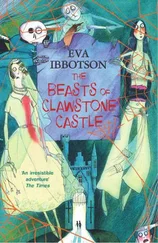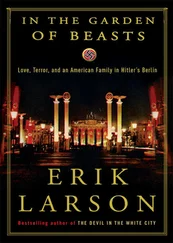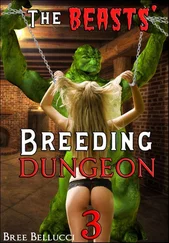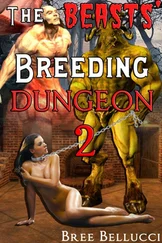“When do we get him?” the chauffeur asked.
“Tomorrow. When he rides out with the boy.”
“We’ll get the boy too.”
“No. Leave the boy to me.”
“We can’t do that. He’s too dangerous.”
“I’ve given you your tyrant. Leave the boy to me, on we have no agreement.” The chauffeur gave a suppressed cry of rage and struck the dashboard, but he said no more. Reynand found fanatics startling. Startling but simple: an equation, he might have said, had he understood anything but the simplest arithmetic, which he did not.
The tape about Sten that Reynard had seen had been immensely popular, had been shown continuously everywhere until its images had grown dim and streaky. It was as well known and worn as an old prayer, an old obeisance. Sten, a naked boy of eight or nine, a perfect Pan-god with flowers in his hair, leading folk to a maypole on donkeyback, laughing and happy in their adulation. Sten in stern black beside his father at some rally, his father’s hand on his shoulder. Sten at the archery butts, careful, intent, somewhat overbowed, glancing now and again suspiciously into the recorder’s eye as though its presence distracted him, Sten in Blue, playing with other boys; there seemed to be an aura around him, a kind of field, so that no matter how they all scrambled and chased together, the others always booked bike his henchmen. The commentary was a praise-poem only. No wonder his father had tried to withdraw him from all this. “Sten Gregorius,” it concluded, after describing his European ancestry, “son of a hundred kings.”
Kings, Reynand thought. Kings are what they want. The desperate rationality of Directonates and Autonomies had satisfied no one; they wanted kings, to worship and to murder.
The day was colder. Afternoon seemed to be hurrying away earlier than it had yesterday. Through the deep windows of the farmhouse Reynand could see the moon, already risen, though the sun was still bright. A hunter’s moon, he thought, and searched within himself for some dank response he was not sure would be there, or be findable if it were.
He wore no timepiece; he had never been able to correlate its geometry with any sense of time he felt. It didn’t matter. He knew it was time, and though he doubted he would hear anything — should not, if his chauffeur and his comrades did their job right — his ears twitched and pointed with a will of their own.
He had never known a schoolroom, and its peculiar constellation of odors — chalk and children, old books and tape-players, pungency of an apple core browning somewhere — was new to him. He carefully pried into papers and fingered things. One of three butterfly nets remained in a rack. The other two, he knew, Mika and Loren had taken to a far pasture. He was glad of that. He felt capable of dealing with all three at once, but if he need not, so much the better.
He sat down on a hard chain with his back to a corner and rested his hands on his stick. He booked to the door just as it was flung open.
Sten, his chest heaving and his eyes wide, stood in the doorway with a drawn bow, its arrow pointed at Reynard.
“I’m unarmed,” Reynand said in his small sandpaper voice.
“Someone’s killed him,” Sten said. His voice had a wild edge of shock. “I think he’s dead.”
“Your father.”
“It was you.”
“No. I’ve been to the house. I delivered a paper there. And came here to visit you.” Sten’s stare was fierce and frightened, and his arm that held the arrow had begun to tremble. “Tell me. Put down the bow. What was it that happened?”
Sten with a cry turned the bow from Reynard and released the arrow at full draw. It broke against a map of the old States, held with yellowing tape against the stone wall. He dropped the bow and fell, as much as sat, on the floor, his back against the wall. “We were riding. I wanted to go down to the beaver dam. He said he didn’t have time, we’d just go the usual ride. We went through the little woods, along the wall.” His face was blank now. “Why wouldn’t he ride down to the dam?”
“He had no time.” That noncommittal voice.
“There wasn’t any sound. I didn’t hear any. He just suddenly sat — straight up, and —” His face was suddenly distorted as a mental picture came clean. “Oh Jesus.”
“You’re quite sure he’s dead.” Sten said nothing. He was sure. “Tell me, then: Why did you come here? Why not to the house? Call the guard, call Nashe…”
“I was afraid.” He drew up his knees and hugged them. “I thought they’d shoot me too.”
“Well. They might have.” A small elation began to grow in Reynard. He had taken a great chance, on slim knowledge, and it would work out. Knowing only Gregorius, and that tape — studying it, watching the boy Sten shrink from his father’s hand on the podium, watching his selfpossession, the self-possession of someone utterly alone — Reynard had learned that there was no love between Gregorius and his young heir, None. And when his father lay bleeding at his feet, dying, the boy had run, afraid for his own life: run not home for help but here. Here was home. “They still could.” He watched fear, anger, withdrawal alternate within Sten. Alone, so terribly alone. Reynand knew. “Sten. What do you want now? Vengeance? I know who killed your father. Do you want to take up his work? You could, easily. I could help. You are much loved, Sten.”
“Leave me alone.”
“Is that what you want?”
For a long time Sten said nothing. He stared at Reynard, unable not to, and tried to pierce those lashless brown eyes. Then: “You killed my father.”
“Your father was killed by agents of the Union for Social Engineering. I know, because one of them was my chauffeur.”
“Your chauffeur.”
“He’ll deny it. Say he had other reasons. But the evidence linking him to USE is there to be found, in his apartment in my house, which will doubtless be ransacked.”
They were like Hawk’s eyes, Sten thought at first, but they weren’t. Behind Hawk’s eyes were only clear intelligence and pitiless certainty. These eyes were watchful, wanting, certain only of uncertainty, and with a fleck of deep fear animating them. A mammal’s eyes. A small mammal’s eyes. “All right,” he said at last. “All right.” A kind of calm had come oven him, though his hands had begun to shake. “You killed my father. Yes. I bet that could be proved. But you didn’t kill me, and you could have.” He prayed to Hawk: help me now, help me to take what I want. “I don’t want anything from you, any of that vengeance or his work or any of that, I don’t want your help. I want to be left alone. Let me stay here. They won’t want to kill me if I don’t do anything.”
“No. I don’t suppose so.” He hadn’t moved; he hadn’t moved a red hair since Sten had opened the door.
“I won’t. I swear it.” A tremor had started in his voice, and he swallowed, on tried to, to stop it. “Give me the house and the band. Let me stay here. Let Mika and Loren stay too. The animals. It’s all I want.”
“If it is,” Reynard said, “then you have it. No one but you could ever hold this land. Your mark is on it.” No hint, no betrayal that this was what he wanted from Sten, on even if such a plan had ever occurred to him. “And now I must flee, mustn’t I? And quickly, since I no longer have a chauffeur; I’m a slow driver.” He stood slowly, a tiny creature standing. “If you are careful, Sten, you need be neither predator non prey. You have power, more maybe than you know. Use it to be that only, and you’ll be safe.” He looked around the stone place. It had grown dim and odorous with evening chill. “Safe as houses.”
Without farewell, he left by the front door, Sten, still huddled by the back door, listened for the uncertain whine of the three-wheeler, and when it was gone, he stood. He had begun to shiver in earnest now, He would have to go up to the house, alert the guard, tell them what had happened. But not that he had come here: that he had stayed with his father, trying to stanch wounds…
Читать дальше
